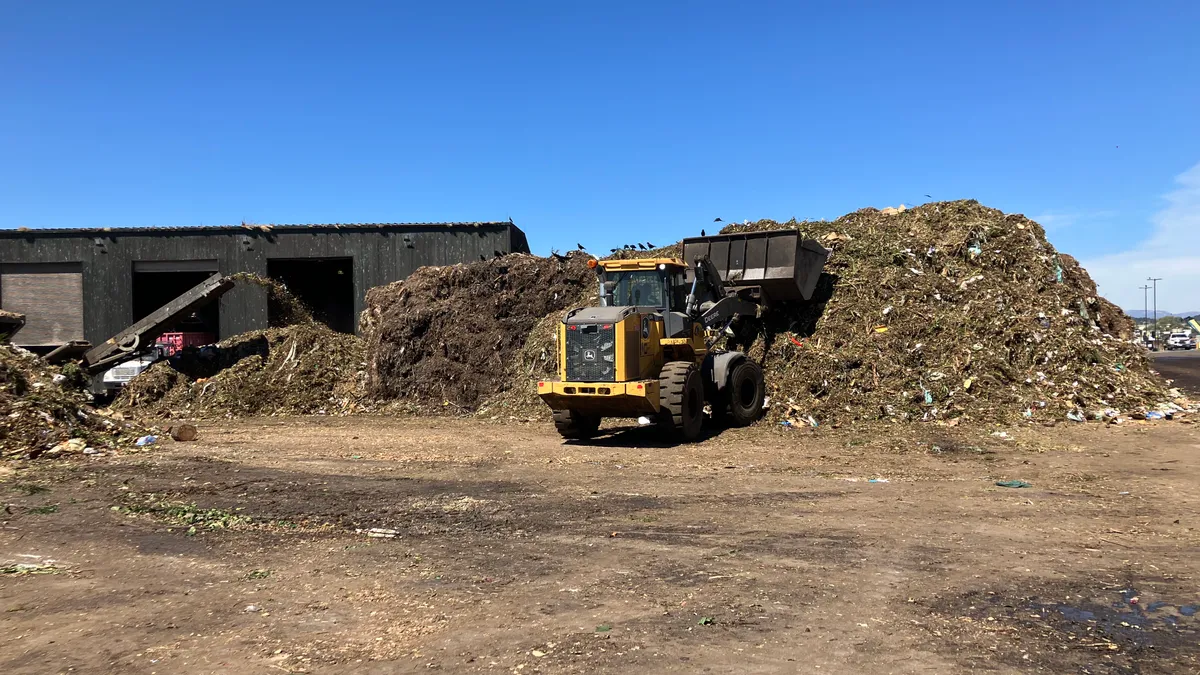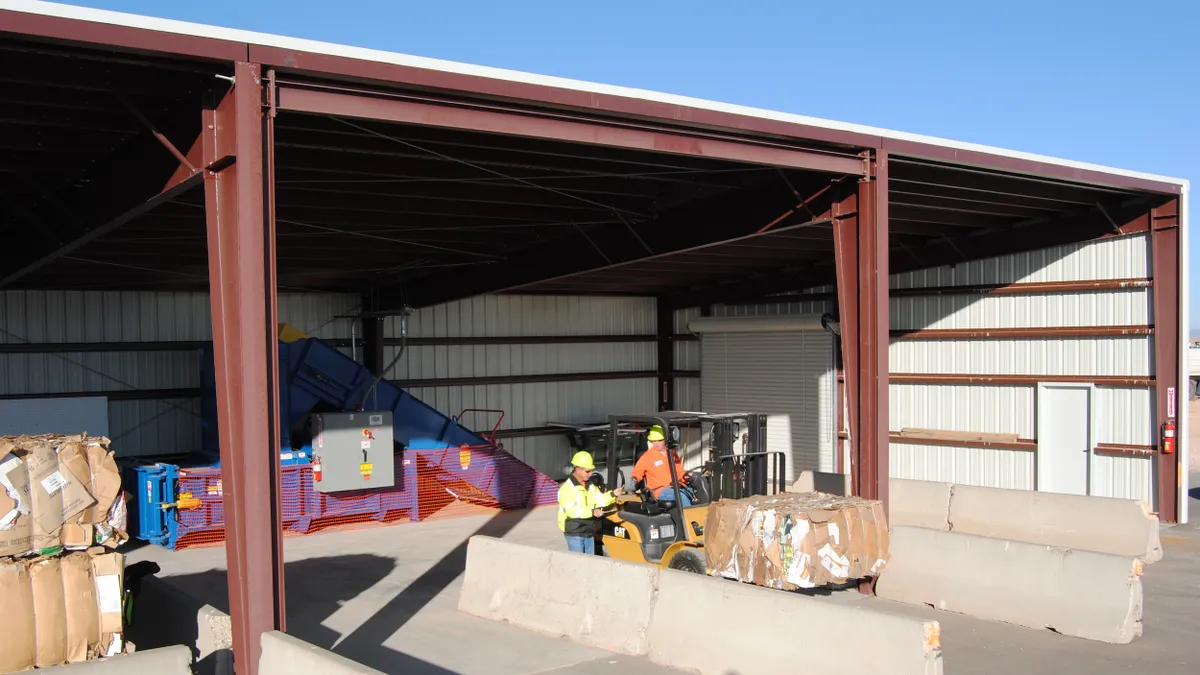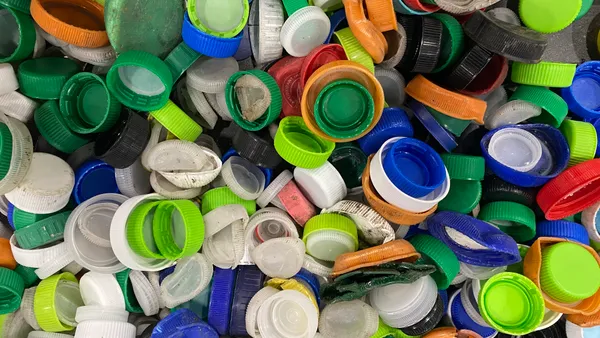Dive Brief:
- Waste Management recently revealed the results of a new study that measured the costs and greenhouse gas reduction benefits of various disposal options, as reported by Resource Recycling. The company started with a theoretical scenario of all material going to landfills with some gas recovery as a baseline for comparison.
- A combination of landfill gas recovery and commercial and residential recycling was found to offer the best balance of overall environmental benefits and cost. Options such as organics processing were found to cost more per million metric tons of gas reduced. This points to the need for more organic waste reduction upstream.
- This led to the key finding that the environmental benefits of recycling outweighed the vehicle emissions created during collection because they offset the use of virgin materials in manufacturing.
Dive Insight:
During a webinar in which the information was presented, Waste Management representatives said this could indicate that it's more beneficial for the industry to focus its efforts on recycling a select group of materials. This means haulers may want to consider moving away from weight-based goals. This could in turn allow material recovery facilities to produce cleaner streams.
"It gives us a different lens for how we make decisions around recycling, let alone the rest of the stream," said Susan Robinson, federal public affairs director at Waste Management, in the webinar.
The company used data from the Environmental Protection Agency for much of the study. The agency also offers options such as the Decision Support Tool for performing these types of calculations. At a time when companies and municipalities are working toward ambitious waste reduction goals it's especially important to understand the effects of different disposal options. Recycling in the most sustainable way is key to the long-term of viability of the practice itself.












